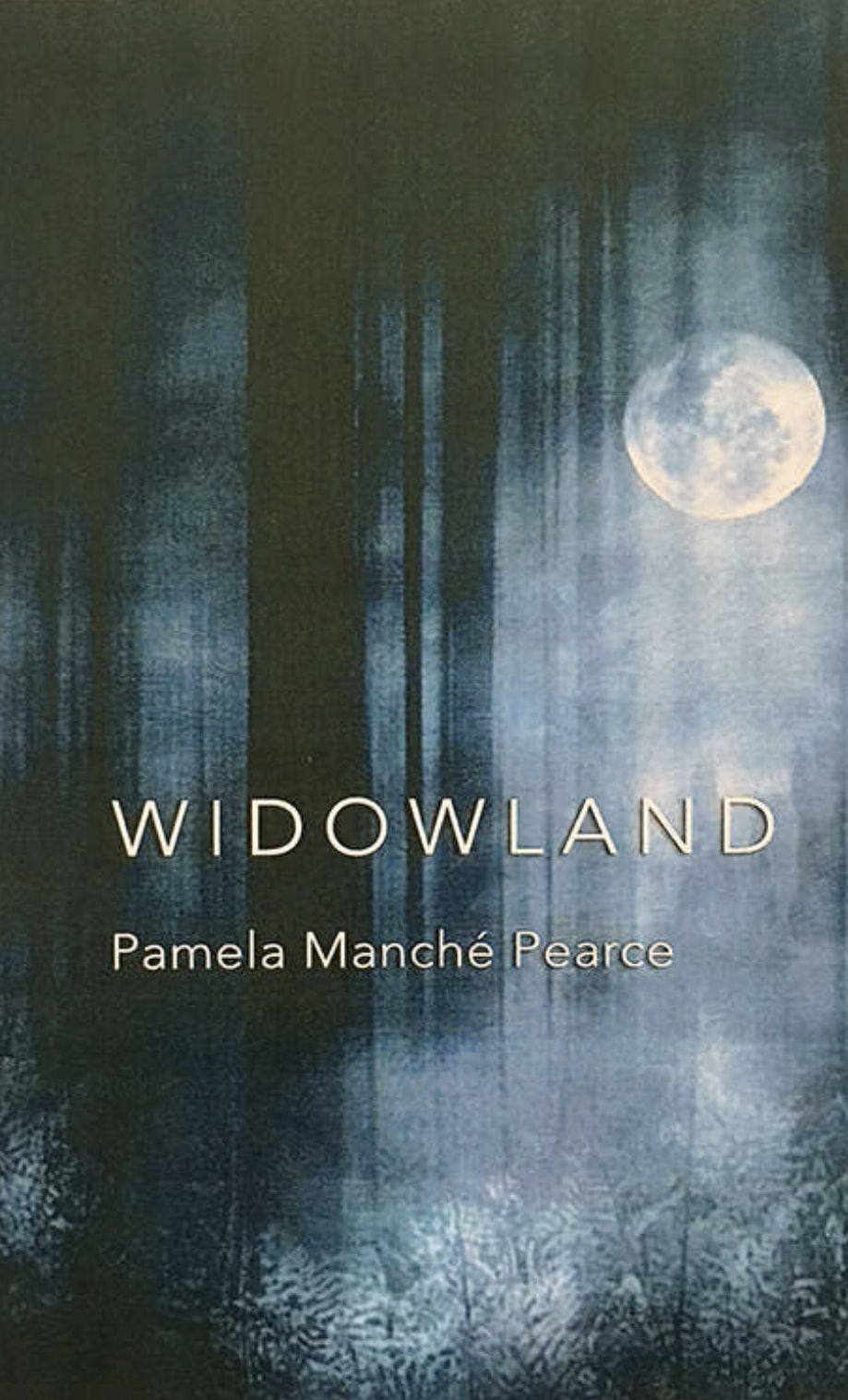|
Widowland by Pamela Manché Pearce (Green Bottle Press, 2018)
Help me when I collapse. (from “Widow, Falling”) Grief. The word contains so much. There is resolution. There is mystery. There is story. In grief, there is individuality. Reflection. The phenomena of existence. Of reality. Of mortality. The processes we have of engaging with and understanding the passing of those around us to memory, history, and a physical absence—these processes weigh us down. Discussions of loss are many. Discussions of grief are few, at least in my culture, where I come from. It often feels like holding a flashlight in a cave, seeking out the contours and recesses of an infinity of investigation. Seeking to understand where they have gone, and where I am following. The significance and the challenge of grief as experience and as culture occasionally is met with art, with creativity, as counter, as balance, as navigation. Widowland by Pamela Manché Pearce is one such act of creation. It is a short chapbook containing 17 poems about grief. About loss. About the death of the poet’s husband. It is a raw glimpse into the texture and energy of these processes of investigation, of understanding, and of living beyond. We didn’t know when the moment would come. But I had no escape from being left behind. (from “Pantoum”) Throughout the collection, we are met with the poet who is existing moment to moment, fragment of experience to next fragment. Everything that was, each system of the relationship that was, has been dismantled, and her life, which continues, must go on, no longer paralleled. The weight is real. The presence of disjunction is real. The resolution is existing but has not yet existed and conclusion is needed. Reflection is active. The moments are strange, excessive, and they plunge into the core of the everyday. There is a sense of the brooding, the gothic, the existential. And it is all broken down into moments. Widowland provides, as a collection, an assortment of beautiful and raw moments that tackle an active life without the poet’s other. Without his living presence. In life, death’s interpretation may be spiritual. It may be emotional. It may be of consequence. It may be an enigma. The many interpretive qualities to the light of life indicate just how challenging these processes of grief can be. I appreciate Pearce’s distinct intentionality in approaching the grieving process (in her poetry) as variously as possible. The poems become dynamic in their arrangement across the book, offering the reader the opportunity to be enamored, to be confused, and to be at a loss of engagement. Because ultimately this is work, and there is a capacity within us all to explore this work. And at some point, capacity will be maxed. What does a well-dressed gentleman wear to have his corpse set afire? (from “I Kiss Your Clothes Goodbye”) There are not many instances of humor or release or relief within Widowland, which makes those instances that do crop up exaggerated and restless. Through confusion, through a reencountered situation or setting, through the novelty of ritual of passing, Pearce relies on the absurdity that is our life and our death and our existence between the two. There is the fleeting sense of lightness that carries the poet along day to day, and night to night. It is satisfying to read her works, anticipate how I would feel, and think about those efforts to reduce the stress, to flit along, and to be. Ultimately, thus, the poet shows where the hidden pockets of relief get to exist, and how death is not excluded from those pockets of relief. I could not help but connect Pearce’s book and the emotions within to other recent cultural contributions covering similar themes. In the literary canon, Widowland comes not too long after Susan Howe’s stark and visceral This That (2010), which also explored, through poetry, the loss of a husband. Pearce’s book also comes after a handful of produced albums by Mount Eerie singer and songwriter Phil Elverum, albums working through, realizing, and processing the sudden death of his wife. These three releases include A Crow Looked at Me (2017), Now Only (2018), and the live album (after) (2018). These works have been not only widely heard but widely lauded, indicating a great cultural need for exploration and description of death and the resultant widowing. It is the color of his cracked fingertips that smell of gasoline as he cups my face to kiss my hair goodbye. I have as many cardinals as I want. (from “Tree of Cardinals”) These recent cultural artifacts are matched with countless other distant and recent portrayals of death, dying, grief, and the afterlife. I can’t help but think about Pixar’s Coco (2017) and the upcoming return to Disney’s The Lion King (2019), all of which make death accessible to many audiences and age groups. The themes of loss and grief, of course, are hardly new; and even to acknowledge more recognition now than in previous moments seems like a precarious approach. But there is a canon, and Pearce arrives in it with her own exquisite verse. With this short collection holding up the weight of so much presence and intentionality, I look forward to seeing the poet’s future engagements with this relationship with loss and beyond in her own Widowland.
0 Comments
Your comment will be posted after it is approved.
Leave a Reply. |
Welcome to Yellow Rabbits. Thanks for visiting.
All reviews by Greg Bem unless marked otherwise.
SearchYellow Rabbits Reviews
Archives by Month
August 2019
|

